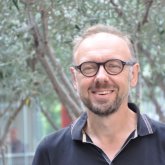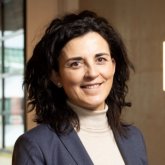Postdoctoral position: A CARtilage on CHIP model for precision medicine in osteoarthritis (CARCHIP)
University of Twente’s Technical Medical Centre is widely recognized for its excellence in development of new biomedical solutions to address important biomedical challenges. Here, various Departments work on pressing topics with high societal and biomedical relevance such as osteoarthritis. The Developmental BioEngineering department (https://www.utwente.nl/en/tnw/dbe) is currently recruiting 2 postdocs in recently granted programs focusing on developing and testing dearly needed joint on chip models for osteoarthritis.
CARCHIP will combine the expertise of the University of Twente (UTwente), chiron, Covaris, Stichting Proefdiervrij and the University of Maastricht (UM) to develop and implement a pioneering cartilage-on-chip model specifically designed for precision medicine in osteoarthritis (OA), the most common degenerative joint disease affecting more than 1.5 million Dutch citizens. To study OA patient heterogeneity at the molecular level, primary cells and tissues obtained from osteoarthritic patients will be endotyped using advanced mass spectrometry-based proteomics. Endotype specific primary cell cultures will be then established using animal free culture media and will be genetically modified with bioluminescent reporters for OA endotype in vitro modelling. These modified cells will be used to establish cartilage on chip cultures using a unique platform consisting of 24 cartilage on chip devices that can be simultaneously exposed to multidirectional loading mimicking cartilage forces in the moving human knee joint. We will validate this model by evaluating both established anti-inflammatory drugs and novel disease-modifying agents currently under development. Additionally, chiron will initiate essential steps toward the commercialization of this innovative platform, which has the potential to revolutionize the development of OA treatment strategies. By integrating advanced technologies such as MS and bioluminescent imaging with cutting-edge organ-on-chip models, the project aspires to enhance understanding of OA pathology and facilitate the development of targeted therapies. This approach not only aims to improve patient outcomes but also seeks to address the urgent need for more effective treatments for this prevalent condition which still cannot be treated effectively. Ultimately, the project will contribute significantly to the field of precision medicine, paving the way for personalized treatment plans that can better meet the needs of individuals suffering from OA, thereby reducing the overall healthcare burden associated with this chronic disease. Successful completion of the project will present the CARCHIP technology as a viable and more alternative for animal experimentation ultimately translating in a reduction of animal use..
Information and application
Please send your application via the ‘Apply now’ button, and include:
- A motivation letter describing why you apply for this position and for which of the three positions you are applying;
- A description of your research interests;
- A detailed CV;
- Academic transcripts from your Bachelor’s and Master’s degrees;
- Contact information (incl. email address) of at least two references who are willing to send a letter of recommendation on your behalf.
About the organisation
The Faculty of Science & Technology (Technische Natuurwetenschappen, TNW) engages some 700 staff members and 2000 students in education and research on the cutting edge of chemical technology, applied physics and biomedical technology. Our fields of application include sustainable energy, process technology and materials science, nanotechnology and technical medicine. As part of a people-first tech university that aims to shape society, individuals and connections, our faculty works together intensively with industrial partners and researchers in the Netherlands and abroad, and conducts extensive research for external commissioning parties and funders. Our research has a high profile both in the Netherlands and internationally and is strengthened by the many young researchers working on innovative projects with as doctoral candidates and post-docs. It has been accommodated in three multidisciplinary UT research institutes: Mesa+ Institute, TechMed Centre and Digital Society Institute.





